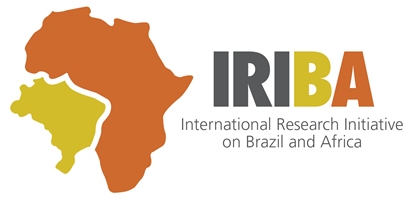The Political Economy of Crisis: What Remains of Brazil’s Development Model?
A new IRIBA working paper by Professor Edmund Amann examines Brazil’s ongoing economic and political crisis and addresses two key questions: First, to what extent was the crisis a result of inherent flaws in the development model that had underpinned previous successes? Second, can th
Why has earnings inequality declined in Brazil?
Building on their research for the IRIBA project, Francisco Ferreira, Sergio Firpo and Julian Messina have recently published a new World Bank paper: ‘Ageing poorly? : accounting for the decline in earnings inequality in Brazil, 1995-2012‘. The key finding are:
Prospects for the Brazilian economy: an interview with Professor Ed Amann
Professor Ed Amann was recently interviewed about the Brazilian development model by the Colombia Global Center in Rio. Watch the wide-ranging interview here: Read an open access special issue on the research here.
FINDINGS: Infrastructure, regulation & development in Brazil
As presented at our 2016 Rio de Janeiro findings workshop by IRIBA researchers Edmund Amann and Thomas Trebat. Listen now:
FINDINGS: The life-cycle of Brazil’s national development bank, BNDES
As presented at our 2016 Rio de Janeiro findings workshop by IRIBA researcher Ernani Torres. Listen in Portuguese:
FINDINGS: The role of fiscal & monetary policies in the Brazilian economy
As presented at our 2016 Rio de Janeiro findings workshop by IRIBA researchers José Afonso and Bernardo Fajardo. Listen in Portuguese:
IRIBA key findings seminar: Is there a Brazilian ‘development model’?
Prof. Ed Amann and Prof. Armando Barrientos gave a presentation on November 25 on some of the central findings of the IRIBA research. They discussed how Brazil’s comparatively successful development performance over the last two decades has been based on a pattern of inclusive g
Q&A: Luis Paiva on the success and future of Bolsa Família
Brazil’s Bolsa Família programme has been credited with helping to significantly reduce levels of absolute poverty and inequality in Brazil. Started in 2003, and funded by less than 0.5% of the country’s GDP, it now facilitates small cash transfers to 46 million Brazilians
Policy in Focus: The Brazilian model of Development
By Armando Barrientos and Edmund Amann. Originally published in Policy In Focus, a publication of the UNDP’s International Policy Centre for Inclusive Growth. As the world begins to wake up to the dire social and economic consequences of rising inequality, we must recognise that it is
Pesquisa IRIBA em Português
We have just published summaries of all the IRIBA research briefings, translated into Portuguese. View them via our Portuguese overview page. Photo credit: Adrien Sifre (CC BY-NC-SA 2.0)
© IRIBA 2014 | All rights reserved I Google+
Hosted by The Brooks World Poverty Institute
